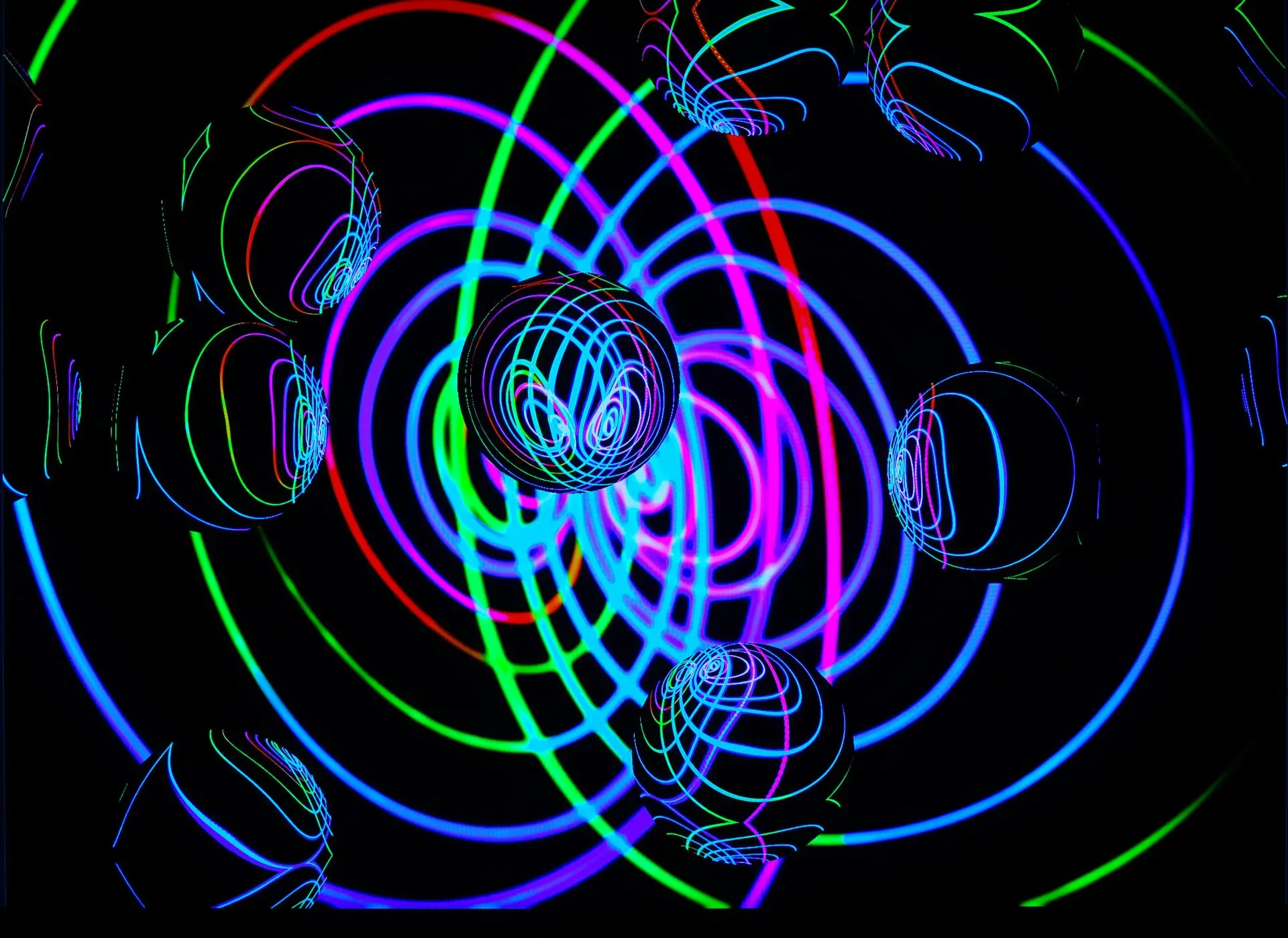Multiverse vs. Universe: What’s the Difference?

Looking for more amazing products? Check out our online store and explore our collection here! Happy shopping!
Before diving in, please note: This post is for informational purposes only. If you’d like to know more about how we approach topics, feel free to check out our friendly Disclaimer Page.
Hey there, amazing readers! 
We’re committed to delivering quality posts, and your support (even just sticking around despite the ads) means everything to us. So, bear with us, and thanks for helping us keep the good vibes rolling. Now, on to the fun stuff!
TRANSLATE BUTTON AT THE END OF THE ARTICLE
Hey there, fellow explorers!
Have you ever found yourself gazing up at the stars, pondering the vastness of the cosmos?
I know I have!
It’s a beautiful mystery, isn’t it?
We often hear terms like “universe” and “multiverse” thrown around in science and popular culture, but do we really know what they mean?
Are they the same thing?
Today, let’s embark on a cheerful and curious journey to explore the differences between the multiverse and the universe.
Buckle up as we dive into this fascinating topic!
Understanding the Universe
What Is the Universe?
Let’s start with the universe.
In the simplest terms, the universe is everything we can observe.
It includes all of space, time, matter, and energy that we know of.
From the tiniest particles to the largest galaxies, the universe is a vast and intricate system that has captivated our imagination for centuries.
The Scope of Our Universe
Imagine standing on a hill, looking out at a sprawling landscape.
You can see the trees, the rivers, and the mountains stretching far into the horizon.
That’s similar to how we perceive our universe.
It encompasses billions of galaxies, each containing billions of stars.
Our home, the Milky Way galaxy, is just one tiny part of this grand cosmic tapestry!
Here are a few key characteristics of our universe:
Age: The universe is approximately 13.8 billion years old, which is quite a long time!
Size: It’s estimated to be around 93 billion light-years in diameter, and that’s just the observable universe.
Who knows what lies beyond!
Expansion: The universe is constantly expanding.
This means that galaxies are moving away from each other, and the farther they are, the faster they seem to be moving away.
It’s like a cosmic dance of galaxies!
The Big Bang Theory
To understand how the universe came to be, we can’t ignore the Big Bang theory.
This theory suggests that the universe started from an extremely hot and dense state and has been expanding ever since.
Picture a balloon being inflated—initially, it’s tiny, but as air fills it, it expands into something much larger.
The Big Bang set the stage for everything we know today, from the formation of atoms to the birth of stars and galaxies.
What Is the Multiverse?
Now that we have a good grasp of the universe, let’s explore the multiverse.
The multiverse theory is one of those mind-bending concepts that invites us to think beyond our immediate reality.
So, what exactly is it?
Defining the Multiverse
The multiverse refers to the idea that our universe is just one of many, potentially infinite, universes that exist simultaneously.
Think of the multiverse as a grand collection of universes, each with its own set of physical laws, dimensions, and realities.
It’s like a giant cosmic library, where each book tells a different story!
Types of Multiverses
You might be wondering, “How can there be different types of multiverses?” Well, let’s break it down a bit.
Here are a few intriguing concepts of multiverses:
Many-Worlds Interpretation: This theory suggests that every decision we make creates a branch in the universe, leading to parallel realities.
So, there’s a universe where you chose pizza for dinner and another where you went with sushi.
Talk about delicious choices!
Cosmic Inflation: After the Big Bang, regions of space expanded at different rates, potentially leading to separate universes.
This means that some areas of space could have different properties, resulting in completely unique universes.
String Theory: This theory posits that the fundamental building blocks of the universe are tiny strings vibrating in various dimensions.
Some interpretations suggest that these strings can create different universes with their own laws of physics.
Key Differences: Universe vs. Multiverse
So, now that we have an understanding of both the universe and the multiverse, what are the key differences?
Let’s summarize them!
1. Definition and Scope
Universe: The universe is the entirety of space and time, including all matter and energy within it.
It’s what we observe and measure.
Multiverse: The multiverse refers to a collection of multiple universes, each existing independently and potentially governed by different laws of physics.
2. Observable vs. Theoretical
Universe: We can observe and study our universe through telescopes, satellites, and various scientific instruments.
It’s a subject of empirical research.
Multiverse: The multiverse is largely a theoretical concept.
While it’s supported by some scientific theories, such as quantum mechanics and cosmic inflation, we currently lack direct evidence of other universes.
3. Dimensions and Properties
Universe: Our universe has three spatial dimensions (length, width, height) and one temporal dimension (time).
Multiverse: The multiverse may contain universes with different dimensions and physical properties.
Some universes could have entirely different rules, leading to fascinating possibilities!
Why Does the Multiverse Matter?
You might be asking yourself, “Why should I care about the multiverse?” Well, let’s explore a few reasons why this concept is so captivating!
Expanding Our Understanding of Reality
Exploring the multiverse encourages us to think beyond our immediate experience.
It challenges our assumptions about reality and invites us to consider the infinite possibilities that exist.
Who knows what incredible worlds could be out there, waiting to be discovered?
Philosophical Implications
The multiverse concept also has profound philosophical implications.
If there are infinite universes, what does that mean for our sense of identity and free will?
Are our choices more significant, or do they lose their weight in the grand scheme of things?
These questions spark deep discussions about the nature of existence and our place in the cosmos.
Inspiring Creativity
The idea of a multiverse has inspired countless works of art, literature, and film.
From superheroes to science fiction, the multiverse concept opens the door to endless creativity and imaginative storytelling.
It allows us to explore themes of identity, choice, and the unknown in thrilling ways!
The Future of Multiverse Research
As we move forward in our exploration of the cosmos, the study of the multiverse continues to evolve.
Here’s what we can look forward to:
Advancements in Technology
As technology improves, scientists are developing more sophisticated tools to investigate the universe and its potential multiverse.
From advanced telescopes to particle accelerators, we are constantly pushing the boundaries of what we can observe and understand.
Collaboration Across Disciplines
The study of the multiverse requires collaboration between physicists, mathematicians, philosophers, and even artists!
By working together, we can deepen our understanding of this complex idea and its implications for our lives.
Public Engagement
With the rise of popular science communication, more people are becoming interested in the mysteries of the universe and the multiverse.
Engaging the public in these discussions fosters curiosity and inspires future generations of scientists and thinkers.
Conclusion: Embracing the Wonder of the Cosmos
As we wrap up our exploration of the universe and the multiverse, I hope you feel inspired by the wonders of the cosmos.
Whether we’re pondering the vastness of our universe or imagining the infinite possibilities of the multiverse, we’re reminded that there’s so much more to discover.
So, let’s keep looking up at the stars, asking questions, and embracing the joy of curiosity.
Who knows what incredible discoveries lie ahead?
The universe and the multiverse are waiting for us to explore, and I’m excited to embark on this journey together!

The Enlightenment Journey is a remarkable collection of writings authored by a distinguished group of experts in the fields of spirituality, new age, and esoteric knowledge.
This anthology features a diverse assembly of well-experienced authors who bring their profound insights and credible perspectives to the forefront.
Each contributor possesses a wealth of knowledge and wisdom, making them authorities in their respective domains.
Together, they offer readers a transformative journey into the realms of spiritual growth, self-discovery, and esoteric enlightenment.
The Enlightenment Journey is a testament to the collective expertise of these luminaries, providing readers with a rich tapestry of ideas and information to illuminate their spiritual path.
Our Diverse Expertise
While our primary focus is on spirituality and esotericism, we are equally passionate about exploring a wide range of other topics and niches 

To ensure we provide the most accurate and valuable insights, we collaborate with trusted experts in their respective domains 
Our blog originally focused on spirituality and metaphysics, but we’ve since expanded to cover a wide range of niches. Don’t worry—we continue to publish a lot of articles on spirituality! Frequently visit our blog to explore our diverse content and stay tuned for more insightful reads.
Hey there, amazing reader! 
Check out our store here and take a peek at some of our featured products below! Thanks for being awesome!











